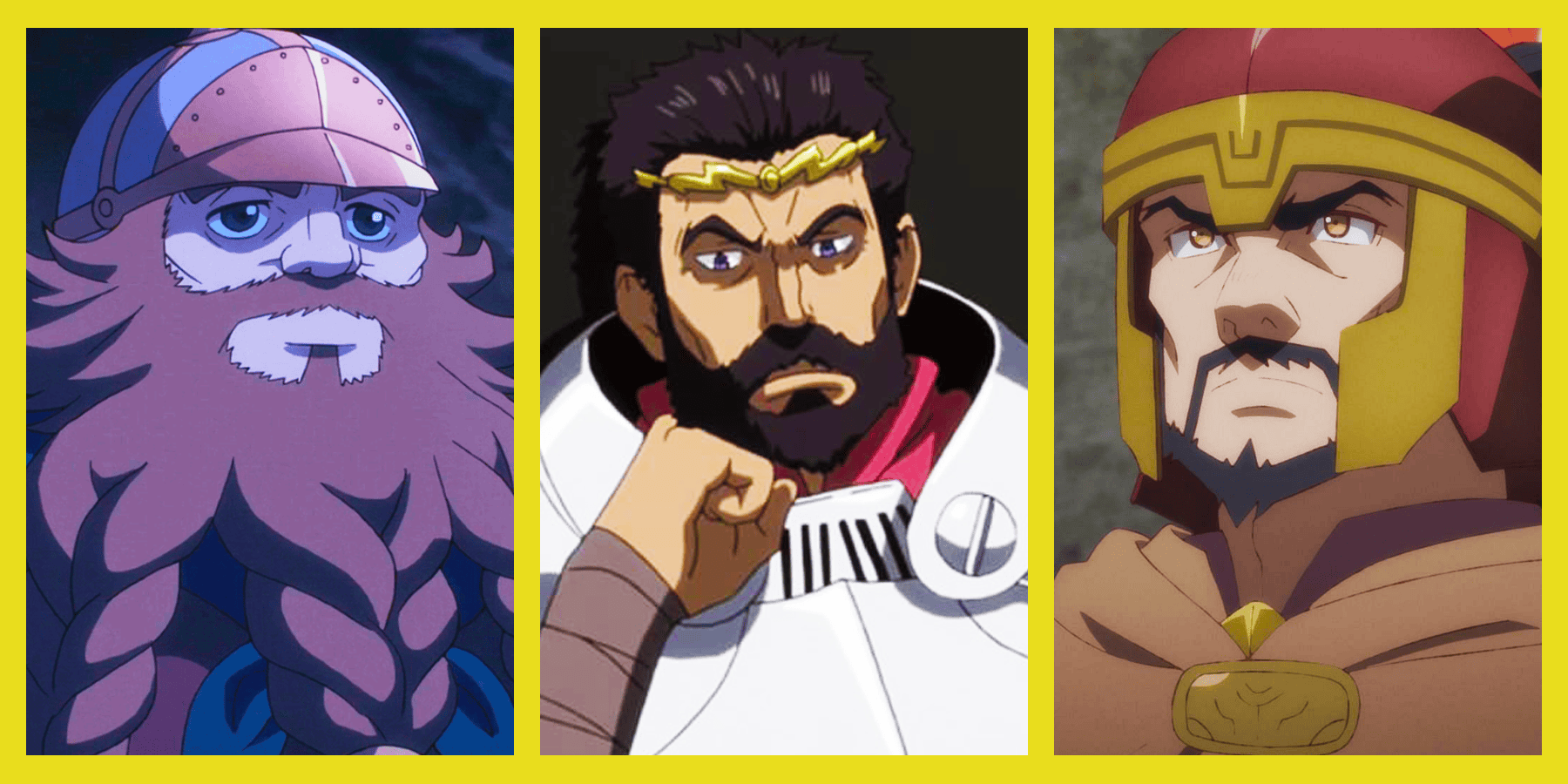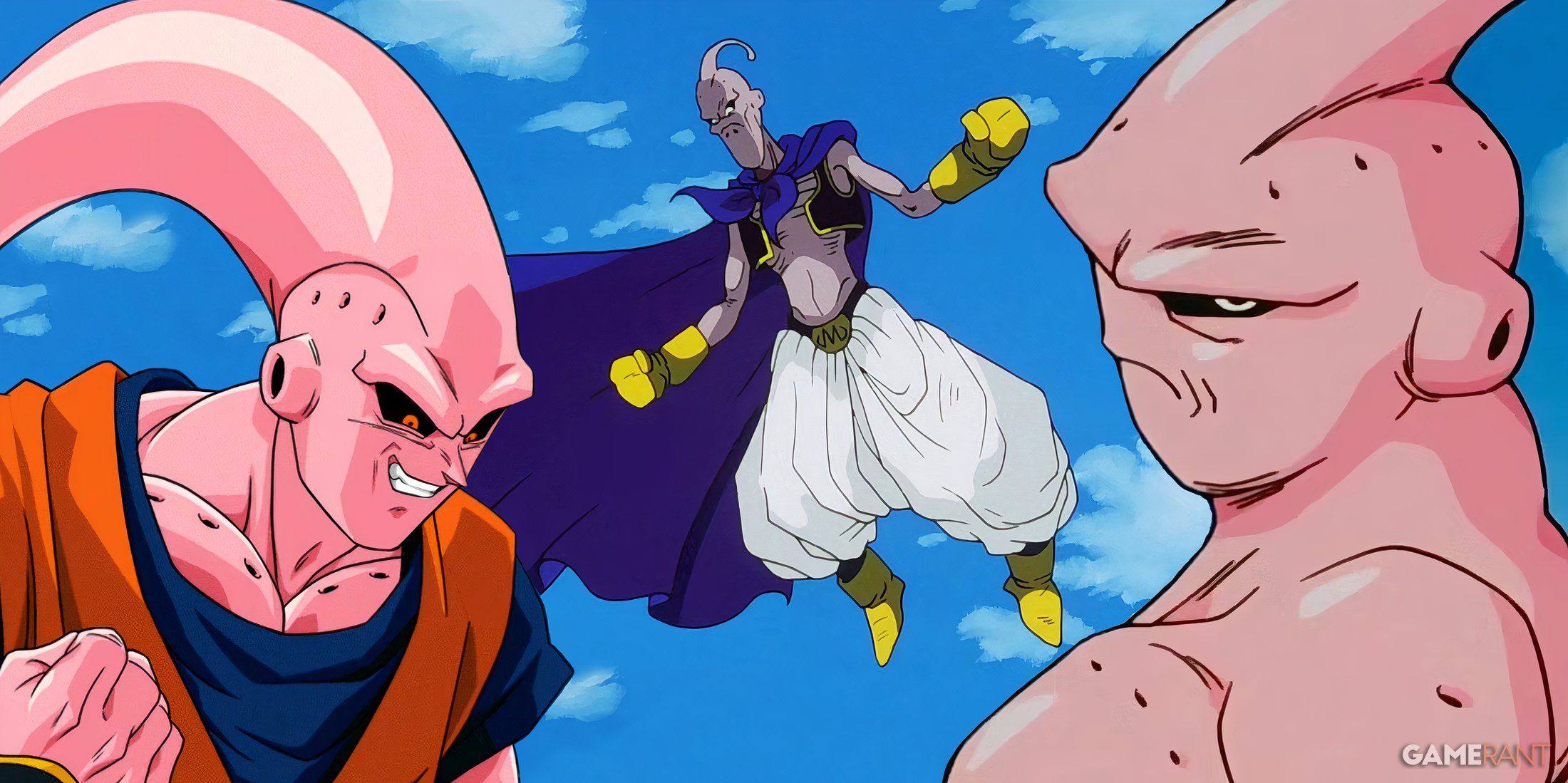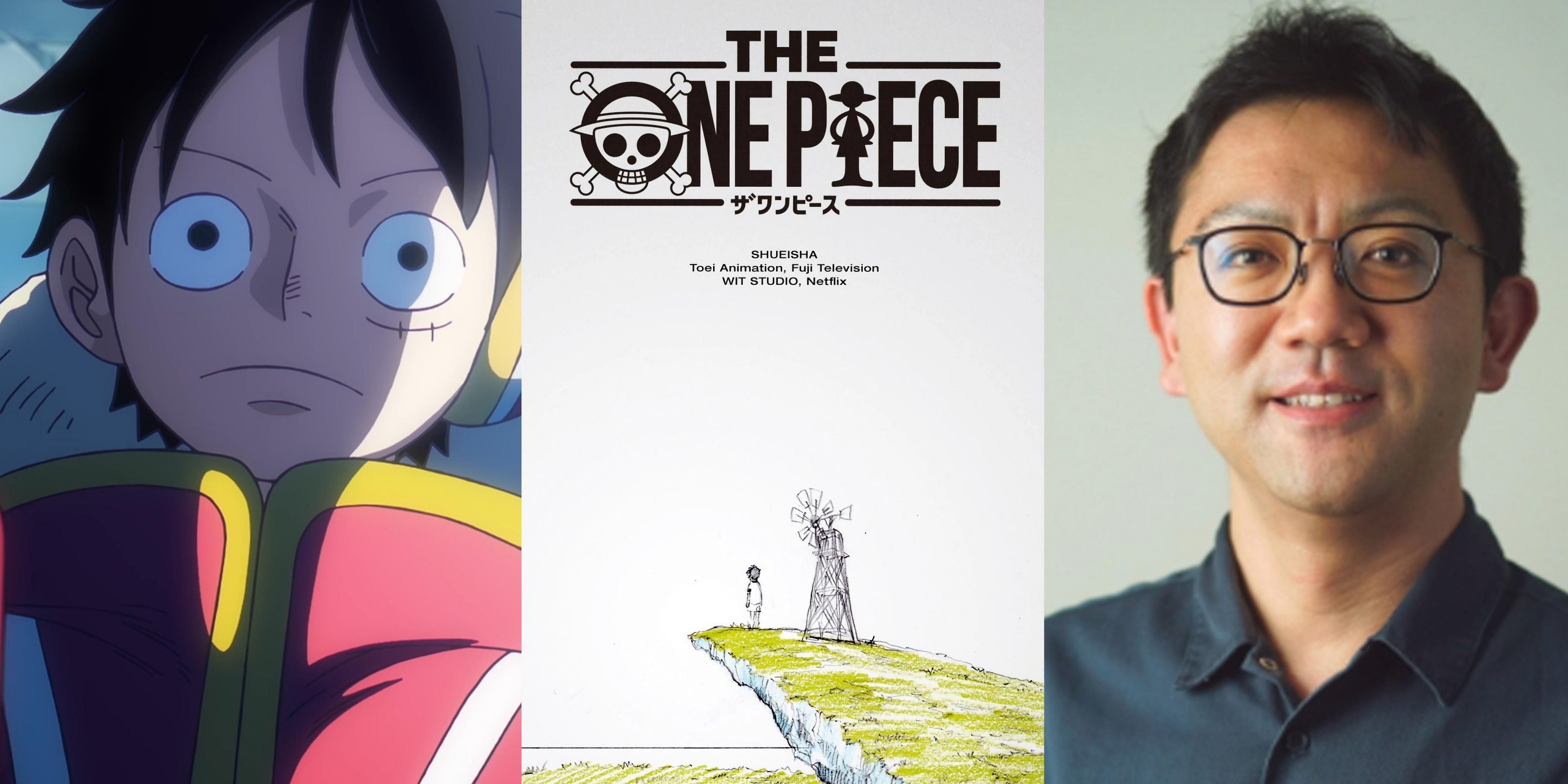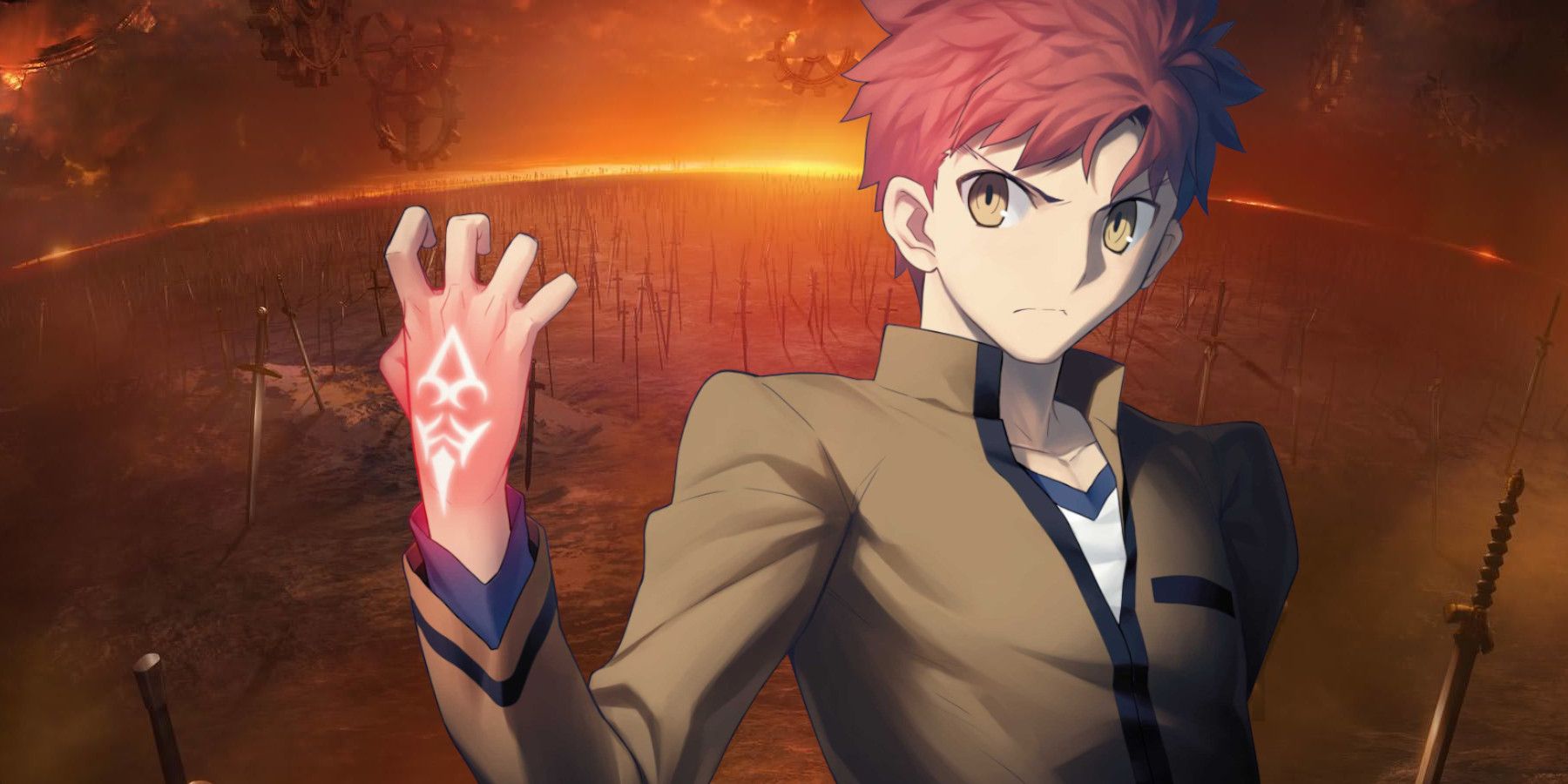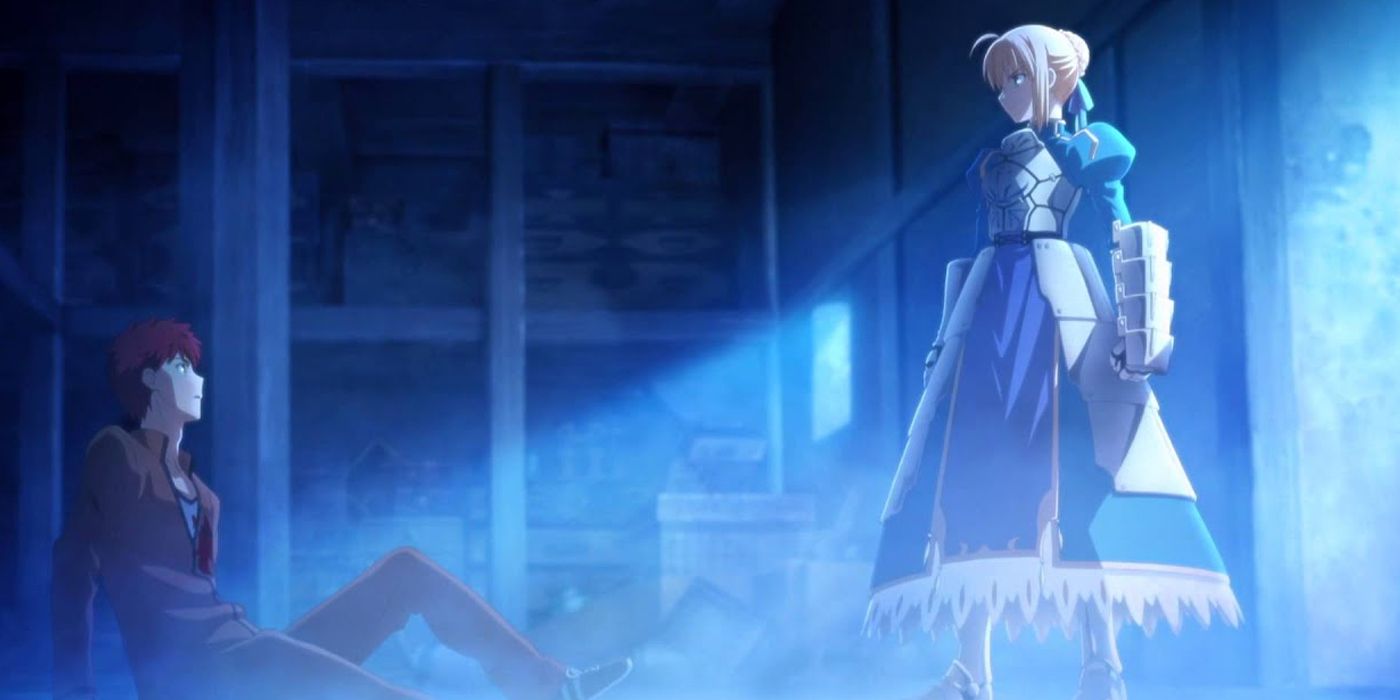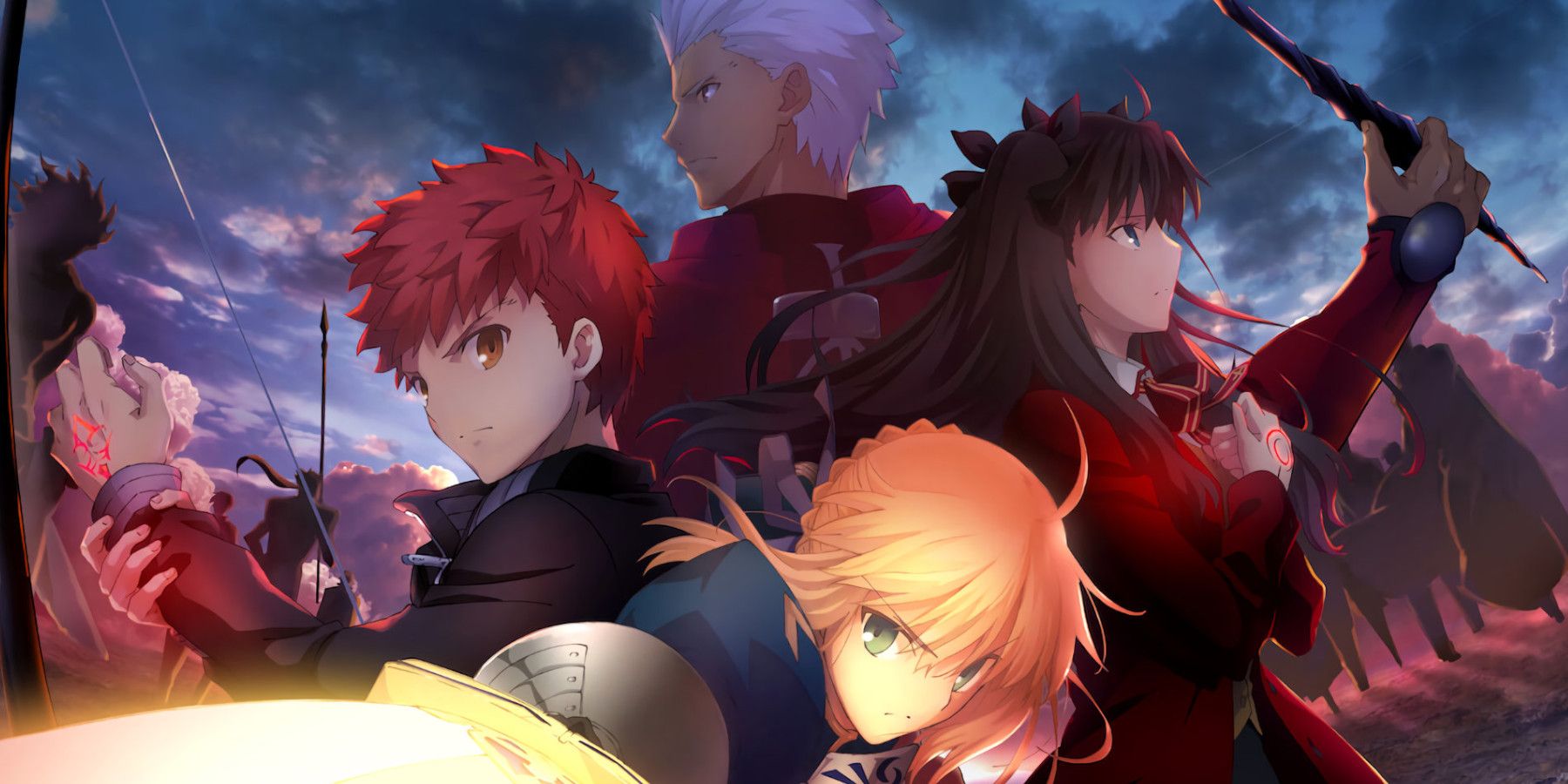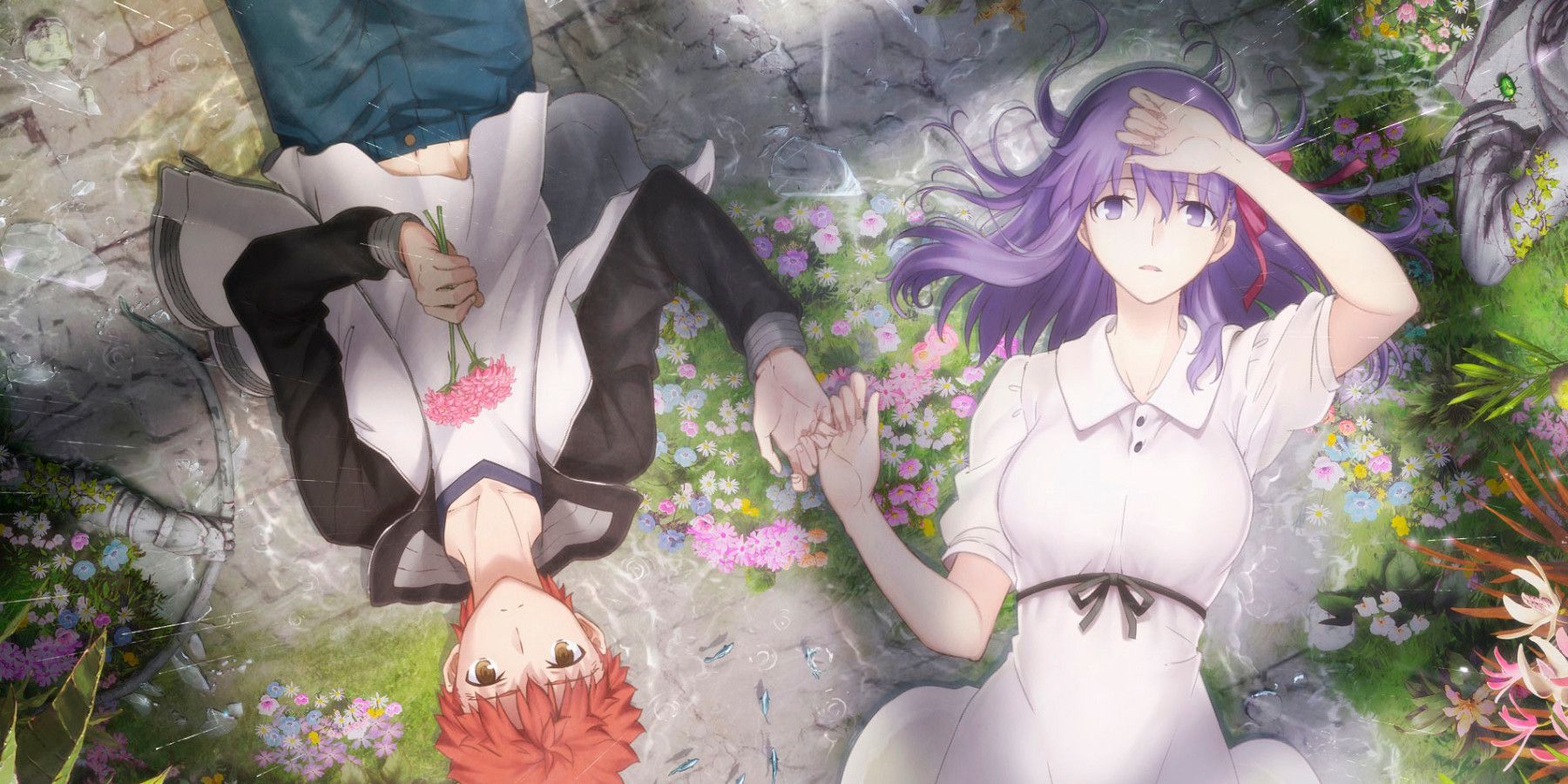Some franchises are packed with so many good characters that the protagonist can be almost forgotten under a sea of more compelling story arcs. One such franchise with an abundance of secondary and tertiary characters is the Fate franchise, but don't forget the protagonist that started it all, Shiou Emiya.
The visual novel Fate/Stay Night was released in 2004 and became a sensation from which a plethora of multimedia sequels, prequels, and spinoffs occurred. The icons that emerged from this story are legendary, but the protagonist has been known to have a mixed reception and while he's been given considerably more love in recent years, it's not quite enough. Shirou Emiya, at first glance, is a funny character in the world in which they are reported to be an especially important individual. A somewhat normal-looking dude wearing a blue and white baseball T, whose most identifying trait is his red hair, might strike someone on the outside looking in as your typical audience insert character.
Just A Regular (And Traumatized) Dude
In the mainstream reception of Fate, Shirou used to be something of a meme, perhaps even viewed as a prerequisite archetype of the visual novel medium that didn't warrant further analysis. Famous lines like "People die when they are killed" and "Just because you're correct doesn't mean your right" marked him as this unintentionally hilarious guy. And for a while, up to and including the airing of Unlimited Blade Works in 2015, this kind of attitude would be fairly common, but there were people espousing a more nuanced analysis of Shirou. It's true that he might seem boring or generic, lacking in some immediately captivating quality that audiences are used to from popular franchises that like to introduce their leads with flair.
The truth is, everything about Shirou that makes them seem like a protagonist and a hero in the world he exists in is very understated, and it's a conscious choice to be that way. Shirou's story begins - conveniently enough - where 2011's Fate/Zero ends. Mild spoilers ahead for the end of that story. At the end of Zero, the Fourth Holy Grail War ended, but not without a calamity that destroyed much of Fuyuki City and killed hundreds. In the middle of the fire that consumed everything, Shirou was saved by Kiritsugu Emiya and became adopted by him. When Fate/Stay Night begins, Shirou's dad has passed, and he endeavors to become a "hero of justice."
He practices magic in his spare time away from everyone else but isn't quite adept at it. He's physically in near-peak condition but doesn't flaunt it or get into fights, even with bullies like Shinji Matou. He clings to this childhood dream of being a hero but at the beginning of the story, he hasn't even learned what the Holy Grail War is. Either his physical prowess, his dream of being a hero, or his magical capabilities could have made him stand out, but he has no reason to reveal any of that. He's just trying to live a normal life and his way of being a hero is to simply... help people, in small ways that anyone could understand. But he isn't just hiding the qualities that make him an ideal protagonist, he's being somewhat reserved because he's burying his trauma.
Shirou has survivor's guilt, feeling a compulsion to do for others everything he can as if he is on borrowed time stolen from all the others that died in the fire that almost killed him. If he can't save others, then what's the point of having survived and been saved? It's from this dilemma that Shirou's character arc branches out into three different paths depending on the route from the VN.
The Three Paths of Shirou Emiya
Fate/Stay Night's storytelling is fascinating because the three routes experienced one by one each exist within the same span of time and follow the same characters but go down different paths. The Fate, Unlimited Blade Works, and Heaven's Feel routes each tell very different stories with different morals all stemming from Shirou's dream. The Fate route is perhaps the simplest one, but no less beloved, prioritizing lore and world-building. By the end of it, Shirou's philosophy remains mostly unchanged, and he endeavors to become a hero of justice, now having answered a call to adventure as grand as the Grail War. This route was the one adapted by Studio Deen in 2006.
After Fate/Zero's success, Ufotable became the ideal studio to adapt Fate to many, and thus the second and third routes were adapted by them. These routes challenge Shirou's ideals in different, very personal ways, that compel him to change or reinforce his morals with new determination. In Unlimited Blade Works, Shirou comes face to face with a vision of who he may become in the future should he fruitlessly attempt to become a hero who saves everyone. He is told that his dream is pointless and that he should abandon it, yet against it all, Shirou determines that just because he can't save everyone doesn't mean he shouldn't try to save who he can.
Heaven's Feel, the third and final route, boldly subverts Shirou's philosophy and confronts them with a threat closer to his heart than any before. It's here where Shirou in some ways abandons his ideal but in other ways simply looks at it from a new perspective. Perhaps he can't be a hero that saves everyone, but he can save those that he loves and cherishes most.
Lost in Translation
The trouble with properly appreciating Shirou as a character is that, for how good the anime adaptations are, they don't fully capture the gravity of the pain inside his head. Without the persistent internal monologue from the VN, it's hard to get the full picture of how complicated Shirou is under this stable veneer he presents.
…It was really fun.
The town I only used to walk by…
I didn't know all the things I didn't involve myself in were so meaningful.
""
As soon as I think so, something like a cage falls on me, and I understand.
I don't deserve this.
I'm unworthy of all this.
It tells me so from deep down within me.
It's lines like this from the Visual Novel that put so much into perspective as to why fans love him as a protagonist. This isn't to say that he is without charm in the anime, and UBW does him a lot of favors in the direction, animation, and performances of its biggest story beats. He's a generally likable, adorable, and noble dude who just wants to do good, and sometimes the simplest things work best.
Fate fans lucky enough to have friends who have read the visual novel have likely heard a lot of this before. Fans of the VN love nothing more than talking about it, especially Shirou's characterization. It's a shame that the Visual Novel itself is not more readily available to purchase or download on digital storefronts, considering the popularity of such a huge franchise.
With the Fate-adjacent visual novel Tsukihime having gotten a remake last year, it would be nice if Fate/Stay Night got some kind of rerelease. But even if such a thing never comes to pass, it isn't impossible to find the original, and there is no shortage of threads and forums to get lost in that dissect one of the more compelling characters in anime's biggest universe.
